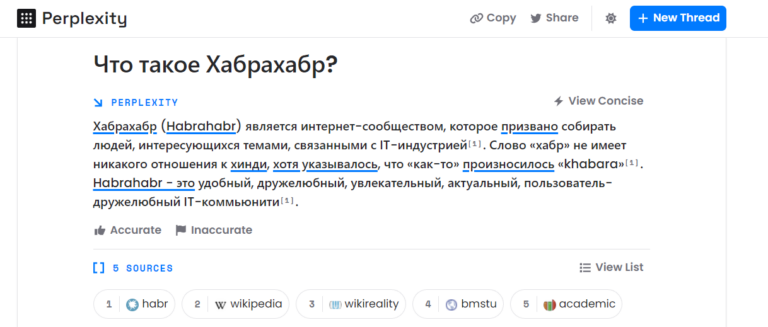Browse Money Podcast Podcast

Alec fav, Unsplash.com
At the end of last year, I decided to write about corporate podcasts and asked on facebookwho deals with them. About 20 people answered, gave examples of programs. As I studied them, I realized that a post in the spirit of “this show about this and that” would not be informative. Therefore, the general story will wait until I take on one show, listen to all the issues and write great podcast reviews.
Started with first season “Money has come”, it is led by Alexander Polivanov and Ilya Krasilshchik.
Disclaimer: I did not set myself any tasks for this material. The format is experimental – based on notes that I made for myself during listening. Criticized some points, others appreciated from a podcast point of view.
I hope the review will be useful to both listeners and podcasts.
I will be glad to read tips in the comments on what should be improved next time.
How to get started listening
This is the most difficult question for me. Therefore, I always appreciate reviews of podcasts, where there are issues for trial listening. In this case, I did not have such clues. Therefore, I could not quickly assess the situation and connect my knowledge of the background of the speakers with the brand. It was hard to take and start listening. I’ll tell you how this process looked, in order.
To tune in, open the feed and scroll through the headlines. With this, “Money has come” everything is in order: I see the diversity of the guests and, most importantly, the issues. For a corporate podcast, this is rare. Typically, companies adhere to the template in the spirit of a “marketing show – we only talk to marketers.” This is not there, except in terms of average duration. This is 44.5 minutes per issue (excluding hermitages – about them further) with minimal deviations.
Generally, skit in the podcast – it’s like Eminem’s track, where there is not a word about his past. In this environment, few people use this technique (and I myself would need it too).
Here, the trailer for the first season is more of a skit, because it sets the mood, but does not show excerpts from releases. The first thing I would do in the process of preparing the second season was to supplement it with such a thread or put it next to it.
While playing trailerlooking through release notes. They are extremely poor in this podcast. There are only common words – literally a paragraph about the topic and the guest. In defense of the publishers, I’ll say that making notes is one of the most troublesome cases in podcasting. I often skip this procedure and supplement notes when the issues are already out and there are some publications on them. Often, for the format of the interview, it is enough to simply introduce the guest, and if the transmission is regular, an editor is needed to take notes. Then you can give timecodes for subtopics, and some links on the topic attach. But all this is a separate story, which there is no point in analyzing.
So, the trailer ends, the mood is set, I begin to listen to the first season. This is a long time.
Peppy start
I try to open first editionif I start listening to a new podcast. I highly recommend doing just that. I will explain why:
- This is the best way to feel the flow of material from the speakers. Here, the atmosphere is in the tradition of Western talk shows – like those podcasts that I already talked about.
- The first issue of “Money has come” begins with live, which in itself is interesting. And this is a unique example of a program with high-quality recording of live communication of speakers in front of an audience. Questions from the audience were also recorded. Some of them turned out to be sweet everyday stories (about how a person suddenly received a kilogram of coins in the form of change, and about the relationship of another guest with the sellers).
- This launch of the show is the merit of the presenters, who, prior to cooperation with the bank, released “Two for the price of one“. I did not know about this podcast, but still as many as 49 issues on a similar topic are a lot. “Money has come” continues the line of that program. The last issue of “Two for the price of one” took place on April 22, and the live Money was held on July 23, 2019. They retreated exactly three months, so there was someone to call on the record, and they successfully used it.
- The main topic for restarting was chosen on the occasion – “Return to Moscow after 4 years abroad“. In addition to the guest questions that I talked about above (by the way, this format is not used in any podcast issue anymore), there’s a point discussion of the game on the exchange in the premiere live. According to it, it is clear that the topic will be encountered in the program quite often.
I switch to second issue.
The title (“Sergei Shnurov on how Sergei Shnurov spends money”) makes it clear that the show is not waiting and immediately comes in with trump cards. But the guest in the interview does not speak so much about spending, but acts as an expert in content marketing.
Shnurov talks about the “war of images”, explains why the content in this case is primary and how money appears as a result of such a “war”.
He also explains why people listen to podcasts. And he plays up the concept of professionalism by the example of how a conditional plumber approaches his work. The interview turned out to be unusual, it’s definitely worth listening to, but it would be strange to wait for such guests in each issue.
I’m moving on – third issue. This is literally All-In! on the first episodes of the podcast – all three with a unique approach to the disclosure of the general theme. This time visiting the hosts – Ilya Gorodetsky with a story about the life of poker players. I recommend listening to interviews even for those who are not at all familiar with this discipline. If only because and how Ilya talks about reputation in poker and the power of words. At this step, I understand that I will listen to the podcast completely, but doubts begin to appear in my mind as to whether the show will keep such a peppy rhythm.

It seems that at this point in the review too much Eminem
Loss of pace
Since the fourth issue there has been a series of distance interviews. She’s a little confusing.
A podcast “in the distance” is always a compromise; it succeeds with the constant hosts, when everyone is familiar with each other’s manner of communication and is understanding. Guest speakers often get used to the fact that the conversation is recorded in a show format, and this affects the pace.
Last quarter release on how to move to Israellistening at double speed with skips. But I make a note that there are interesting details about the basic costs of living in this country.
The fifth episode develops an approach in the spirit of “stories from the life of the inhabitants”. By title and pitch, it resembles a magazine of another bank. It goes about a certain Julia and her amateur manipulation of real estate – good resale earnings. I listen to the story, I am waiting for the inserts with the comments of the expert on the topic, but they are not. In places, Julia has actual inaccuracies (timecode 10:26 – “under the law it is forbidden to open an LLC in your apartment” – this is not so, especially if you homeworker and you are not going to engage in conditional welding of metal, the tax registration will not refuse). In this situation would help text decryption with notes – there one could point out an inaccuracy and give an expert comment from the bank.
In defense of the producers, I will say that it is very difficult to prepare issues in the format of situations with ordinary people. The listener does not fully understand what to expect, why to listen to this particular person, what is his expertise, how to establish it.
To prepare such issues at a weekly pace is very difficult – between one and the other you need to close a lot of editorial and organizational tasks (choose a topic, arrange with a guest, find time, prepare for recording, check everything, record, process, make editing, make changes, fill out metadata for publication).
Alexander is in the role of a skeptic. His approach to maintaining maintains interest. After listening, I recall the development curve of any project. She says the show will be a “Great Egein.”

Paul millerFlickr CC BY
Back to sixth issue. Visiting leading experts with a story that science knows about the nature of wrong spending. This format resembles a thematic headings on the Mayak with scientific speakers. Segmented notes would help here. The issue has terms and complex approaches to a particular issue, therefore, semantic blocks and links on the topic are needed, like air. I master the interview and note for myself a couple of places – about why we need so many coffee houses and pharmacies; and flash back with Shnurov. In podcasting, you need to use this technique more often.
Seventh issue of how to lose 4 million rubles at forex. I do not like the topic, but I try. Leading here do not tolerate too serious a mood from the previous issue, and this contributes to audio design show. But by the tenth minute it becomes a lot.
By the way, another difficulty with recording stories from the lives of real people is that it is very difficult to make such episodes consistent with each other. Someone says that a tough format helps, others limit them in time, still others make such releases in the spirit of “reading letters from the audience.” The approaches are very different.
It seems like something like this was done in the next composite issue where six people speak!
The founders of Coub participate in it, and together with the leaders give more dynamics. But the very topic of moving to the States is beaten. All this is in almost any material from expats – from visa stories to basic expenses. But if you have not read this, it will be more convenient to study everything in audio format.
Rebound
The story of ex-PR director of Yandex about how to go on a journey for eight months, confirms – the podcast has picked up pace. Case about long trips adds thematic diversity, although there is little about money – mainly organizational issues.
But then comes imperishable!
it The history of the Mongol rally on the Lada 1985. Here, the program finally turns into a tourist program, but listening to it is easy. One of the most eventful issues and, most importantly, on the topic of the show – with a bunch of details about the costs and features of handling money during the rally.
Sound design without busting with effects. Also, as I understand it, they used audio cuts from the posts of guests of the program in social networks. A cool find, in few places I heard this technique.
Unfortunately, after such an enchanting release, I could not force myself to listen to the story about a certain Olya. She is a shopaholic (I didn’t like the feminitive), great money saver and even made her own film. It seems that films will soon replace podcasts and become the new black. Theme is everywhere!
Twelfth issue of Pro Petya, who records all his expenses in the application, I listen only because at the very beginning they say what he painted cover podcast (this is not in the description). The interview is geeky, so if you are far from a love of software, games and accounting for everything and everyone, skip it. Although for me it is one of the top issues. Recommended for exploring the podcast.
More meat
- “How to make 15 thousand pies a day“- an excellent pace of discussion and a new thematic thread in the podcast – interviews with entrepreneurs. Almost everyone does this, but here a conversation with a novice food maker is easy and in the expected style of the show. A lot of details and stories about the progress of the enterprise, problems with accounting, other difficulties and solutions. Want to feed people and earn money, be sure to listen.
- “In the studio of Ivan Golunov“- the fourteenth issue of the program about complaints about the urban economy – that is a lot of money. I did not think that I would ever write at least a letter about this topic, but I listen to the interview with interest. Audio cuts are reminiscent of the English-language podcast You Look Nice Today, plus they highlighted clear semantic fragments. Reception to be used.
- “How we spent money 150 years ago“- a wonderful conversation with Elena Korchmina from HSE. The producers, along with the guest, recreated the life and financial reality of Moscow 150 years ago. It turned out something in the spirit of Westworld, only in the podcast.
Skeet and the last two
Instead of the sixteenth issue – I listen to “Jin!“. After I discover a new topic for myself – the Fire movement. It’s about how not to work after forty.
I’m waiting background informationto find out where this whole story came from, what kind of statistics it is, but for the first ten minutes I just go over the idea that in general people could easily save.
I also constantly confuse the voices of guests, inserts with their answers are not always easy to recognize when listening in the background. The main topic starts around the twelfth minute. At the end of the 26th – a successful return to the question of why we work at all.
Before the last release of the season, I make a note about a typo in the description. The topic for me is not the most interesting, but I quickly get involved in the story of how to move to the village and open a farm.
Guests give a lot of details and everyday tales: about the hostile mood of local, unyielding neighbors and about those who helped them. They talk about drunkenness in the village, the attitude to money. I would love to listen to the podcast of these guys, but I do not think that they have time for this. Another season has a cool ending – real hidden track (skit) in the last six minutes of the final release.
P.S. A joke about environmental friendliness (the topic is being promoted by the bank, for which the podcast has been made). Audio Bitrate could be reduced from 320 to 192 kbps. This will not affect the quality of the spoken content, but the releases will weigh less. They can be downloaded faster. The load on the network infrastructure on the way from the server to smartphones will decrease, the planet will be even cleaner!
P.P.S. Thank you for reading! Hope it was helpful.
If you plan to launch your podcast (personal or corporate), I will be happy to help with the recording, processing and distribution in various formats. Write in PM here or in fb.
![]() Highlight Playlist from Content Marketing Podcast
Highlight Playlist from Content Marketing Podcast![]() Five Proven Podcast Books
Five Proven Podcast Books
Facebook Content Marketing Notes:
![]() What is there on Habré – we deal with the latest changes
What is there on Habré – we deal with the latest changes![]() Archetypes: Why Stories Work
Archetypes: Why Stories Work
Additional reading on Habré:
- Why PR agencies need to be friends with small IT editions
- What podcasts does the “Committee”, “Habr” and Sports.ru have
- Podcasts Rusbase, Medusa and KinoPoisk





